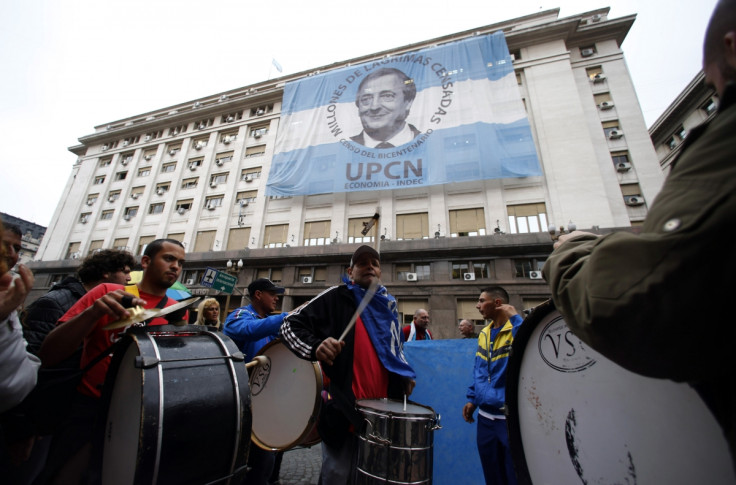Hold-Out Fund Elliott Management Pursuing Sanctions Against Argentina

US-based hedge fund Elliott Management is pursuing sanctions against Argentina for refusing to comply with a US court order, and is continuing search for Argentine assets globally.
Bloomberg, citing a letter from the holdout fund to investors, reported that Elliott will continue a decade-long search for Argentine assets to enforce $1.7bn (£1.1bn, €1.4bn) in court judgments stemming from the country's default.
The country has been engaged in a long legal battle with hedge funds led by Elliott Management Corp and Aurelius Capital Management LP, which refused to take part in the country's debt restructuring after its 2001 default.
NML Capital, a subsidiary of Elliot, purchased Argentine debt on the secondary market and rejected Argentina's restructuring offers. NML sued for full repayment in US courts, initially seeking more than $1.3bn.
US Judge Thomas Griesa had earlier ruled in favour of the so-called vulture funds, barring Argentina from paying the holders of its restructured debt unless it pays the hedge funds.
However, Argentina organised payment to restructured bondholders via an Argentine bank to avoid paying the hedge funds. Subsequently, Griesa held Argentina in contempt of court for its failure to follow a court order to continue to pay its bondholders.
Nevertheless, the country continued to seek ways to circumvent the court order and come out of the crisis.
In order to resolve the disputes, Griesa gave court-appointed mediator Daniel Pollack greater powers with the stakeholders, enabling him to bring investors other than the principal hedge fund plaintiffs to the table for comprehensive negotiations.
Pollack has not yet set a date for the next round of negotiations.
On its part, Argentina has asked the federal appeals court in New York to reverse Judge Thomas Griesa's contempt ruling against it.
During the course of the dispute, the US government, the International Monetary Fund and religious and development organisations have expressed concern that the case's implications could make it more difficult for poor countries to restructure their debts.
"The case shows real challenges in the US court system's ability to resolve debt disputes and enforce court orders," said Eric LeCompte, executive director of the religious debt relief organisation Jubilee USA.
"The case motivated investors, banks and governments to prevent predatory and hold-out behaviour by inserting protection clauses in contracts. The case moved a vote at the United Nations to create a new debt resolution process."
© Copyright IBTimes 2025. All rights reserved.






















